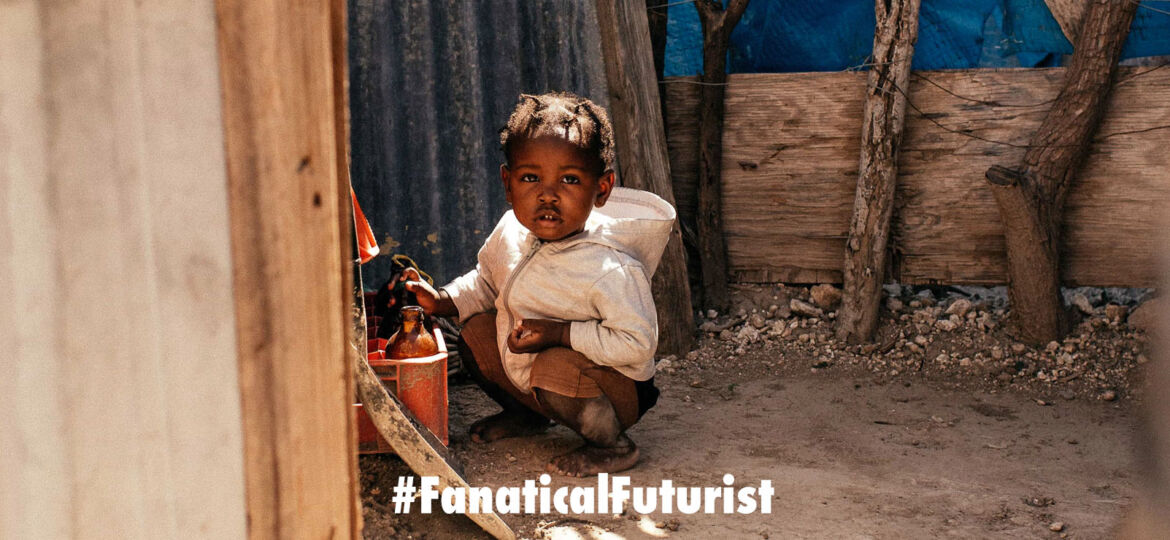
WHY THIS MATTERS IN BRIEF
Despite recent developments, if poverty was a disease governments would classify it as a pandemic, now though the unlikely union of emerging technology and the charity sector could one day drive poverty to zero.
As the popularity of blockchain grows so too do the number of use cases – and one of those use cases is the simple global distribution of wealth, and now a charitable organisation based out of the US, the Grantcoin Foundation (GF), has taken it upon itself to combine arguably two of the world’s hottest topics. No, I’m not talking about AI and SpaceX, I’m talking about blockchain based digital currencies and Universal Basic income (UBI), which when you think about it could be a match made in heaven – especially for charities and people in need.
Called Grantcoin (GRT) the new digital currency is the first in the world to be backed by a tax free nonprofit NGO, and the first to be distributed globally under the principles of UBI, and over time the foundation hopes they can use the two to lift over 22,000 children around the world out of abject poverty.
Using GRT the foundation distributes a quarterly Grantcoin Basic Income (GBI) to people in need, and since starting last year they’ve distributed GRT’s to 1,132 applicants in 79 countries around the world, including the UK and USA where you might not think poverty, at least abject poverty is a factor.
So far the foundation’s distributed a total of 6,697,957.301225 GRT, worth over $13,000 with the average recipient receiving 5,916.923411 GRT which at the January 31st 2017 price of GRT equates to approximately $3.71 each. And if that doesn’t sound like much then remember that in many countries around the world the average daily wage is below $1.65 so even that small amount moves the dial, and provides a few good meals.
“Each year, we plan to add 3.5% to the GRT already in circulation,” explains Stetson, Founder and Executive Director of the Grantcoin Foundation, “this will be given as Grantcoin Basic Income grants to everyone in the world who chooses to participate, growing the money supply in a way that provides equal access to all.”
When people are verified and signed up for GBI they’re given the option of either creating their own GRT wallet and sending the foundation the address, or having the foundation create a wallet for them – many people chose the latter option. The foundation then distributes GRT into all of these wallets, but people who didn’t create their own wallet have to get the blockchain address and private key to their wallets via Lockbin, an encrypted E-Mail service.
The foundation also recently partnered with Ekata Social to create an automated system for verifying and approving people and the new system has significantly reduced the amount of human labor needed to enroll applicants and filter out fraudulent registrations, but over time the foundation wants to entirely automate the system.
UBI, though controversial, is largely seen by experts around the world as a potentially viable solution to financial inequality as it equally distributes wealth to individuals regardless of social and employment status. UBI supporters, like the EU, as well as Tesla and SpaceX CEO Elon Musk, see it as a possible fix for the expected job displacement bought about by increases in automation and digitisation. It is also highly regarded as a better alternative to existing social welfare programs that many governments currently use.
Critics of UBI though say that it will create a culture of dependence and laziness, but a World Bank study, however, shows the opposite. According to the study, in places where UBI programs are being tested, such as Canada and Finland, people consumed less “temptation goods.”
“GRT is already making a big impact in people’s lives – especially people who live in impoverished countries and need this financial support to save for a better future,” said Stetson, ““imagine the tremendous, world changing impact that GRT and GBI could have if this project really gets funded.”
Hopefully, as these grant programs continue, UBI can prove to be a valuable social program that could improve the quality of life for countless individuals living in poverty, and who knows, perhaps blockchain, which can help organisations cut costs, improve efficiency and truly tap into the power of the networks has found its spiritual home – in the charitable sector.

















Incredible opportunity.
Great example on using technology to advance social good!